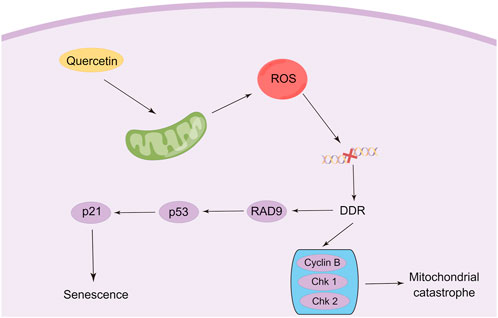Targeting of nonapoptotic cancer cell death mechanisms by Biology Diagrams
BlogTargeting of nonapoptotic cancer cell death mechanisms by Biology Diagrams Mitotic catastrophe has been observed in response to treatment with a variety of genotoxic agents that have different mechanisms of action (Table 22.1).These data demonstrate that mitotic catastrophe is an important and widely observed mode of death in response to treatment with genotoxic agents [58].It is likely that these cells undergo checkpoint adaptation to enter mitosis with damaged DNA Mitotic catastrophe is a process of cell death induced by radiation, chemotherapeutic drugs, or hyperthermia. Mitotic catastrophe results from aberrant mitosis, which is followed either by cell death through apoptosis or necrosis or by partial or complete fragmentation of interphase nuclei with eventual cell death or senescence. For instance, mitotic catastrophe has been delineated as a type of cell death that: results from abnormal mitosis and is associated with spontaneous premature chromosome condensation and the

Abstract. Mitotic catastrophe, as defined in 2012 by the International Nomenclature Committee on Cell Death, is a bona fide intrinsic oncosuppressive mechanism that senses mitotic failure and responds by driving a cell to an irreversible antiproliferative fate of death or senescence. Thus, failed mitotic catastrophe can promote the unrestrained growth of defective cells, thereby representing a Igor Roninson attempted to define mitotic catastrophe in morphological terms, namely, as a type of cell death resulting from abnormal mitosis, which usually ends in the formation of large cells The current literature is devoid of a clearcut definition of mitotic catastrophe, a type of cell death that occurs during mitosis. Here, we propose that mitotic catastrophe results from a combination of deficient cell-cycle checkpoints (in particular the DNA structure checkpoints and the spindle assembly checkpoint) and cellular damage.

Cell death by mitotic catastrophe: a molecular definition Biology Diagrams
A cell that has been treated with taxol and had a catastrophic mitosis. The cell has become multinucleated after an unsuccessful mitosis. Mitotic catastrophe has been defined as either a cellular mechanism to prevent potentially cancerous cells from proliferating or as a mode of cellular death that occurs following improper cell cycle progression or entrance. The term 'mitotic catastrophe' refers either to cell death or a moribund precursor state that is triggered by aberrant mitosis. Mitotic catastrophe can occur either during or after mitosis. 1 Mitotic catastrophe can be induced by a heterogeneous group of stimuli, including chromosome damage and perturbation of the mitotic apparatus. When cells detect DNA damage, they arrest the cell cycle

Keywords: Mitotic catastrophe, Cell death, Senescence, DNA damage, Cancer. Introduction. Back in 1939, Glücksmann and Spear first described a fraction of cells in the mitotic stage that instantly declined in response to radiation and did not reappear until several hours following treatment.

Cell death by mitotic catastrophe: a molecular definition Biology Diagrams
Mitotic catastrophe (MC) has long been considered as a mode of cell death that results from premature or inappropriate entry of cells into mitosis and can be caused by chemical or physical stresses.
